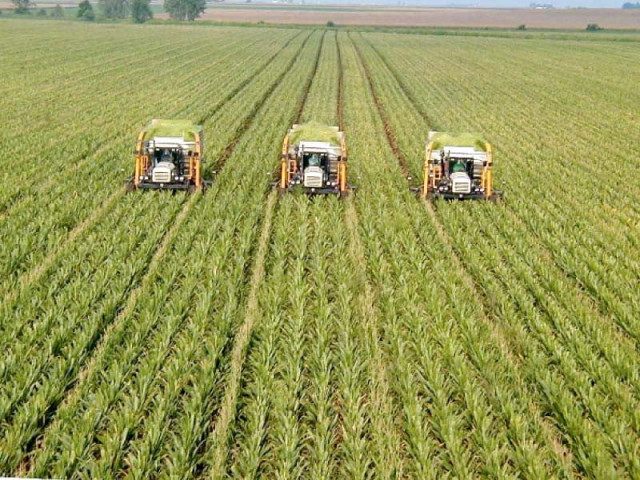Educating farmers to boost exports
One window for selling commodities online can break vicious cycle for growers

In today’s global marketplace, buyers purchase a wide array of commodities from different parts of the world.
The global buyers, however, face various challenges while buying commodities across geographical boundaries.
Traditionally, they go through a long and cumbersome process of procuring such commodities that includes but not limited to quality assurance for the commodities as per international standards, issuance of Letters of Credit to the sellers, procurement challenges such as ground logistics, sea cargo, insurance cover and overcoming local customs hurdles prior to getting the commodities delivered at their desired ports.
In Pakistan, farmers and commodity stockists produce and export a rich variety of agricultural and non-agricultural commodities globally.
It is often very challenging for them to find international buyers or satisfy their demands due to various bylaws and operational challenges. As a result, they tend to lose their market share against competing countries.
Enrichers Investment Group Chief Executive Officer Syed Abdullah Bukhari said that educating farmers and stockists is the only way for the country to boost the agricultural produce as well as sell the excess produce in global markets by using latest trading tools.
“Export is not about ‘one size fits all’, a successful reorientation towards our trade policies keeping in view the accreditation protocols of export destinations and understanding legalities of each market is crucial,” he said.
In an interview with The Express Tribune, Bukhari said that Pakistan’s Asian counterparts are accelerating their integration with the regional and global markets.
The rationale behind Pakistan’s unimpressive growth is its enormous dependence on international business intermediaries, low margins, vulnerable fluctuation in prices and terms of trade, energy shortages, adverse trade policies, tariff and non-tariff barriers, and paper-pusher customs procedures to name a few, he pointed out.
“With respect to exports, relatively poor productivity growth rate is an obstacle to the much-needed inflows. To keep pace with the global food demand, there has to be a shift from the domestic demand-generated growth to the export-oriented growth and for that we need to have precise, geographically explicit knowledge about the gap analysis with local-to-global relevance.”
Policymakers, development professionals, and entrepreneurs can cultivate avenues of growth by promoting the country’s produce to create demand and find the best match to manage the demand-supply bottleneck, said Bukhari whose company provides investment opportunities in diverse areas.
In addition to this, particularly educating farmers to a great degree can improve the productivity outcome that can create a holistic impact on the export-oriented growth. “Having said that, we need to create capabilities of growth by linking research to strategies to realise Pakistan’s economic growth potential,” he said.
Bukhari believes that among the two wings of commodity trading, ie cash-settled futures and deliverable futures, the latter “can play a critical role in adding a decent plaster to the fractured economy”.
Although the deliverable futures come with a unique set of complexities, the recent initiative by the Pakistan Mercantile Exchange, under the Global Commodity Trading Platform, has open the gateway of opportunities by ensuring transparency and efficiency, he said.
“One-window solution to sell commodities electronically to the overseas buyers can break the shackle of vicious cycle for the farmers who are subject to manipulation, and may turn out to be a milestone to drive our economy.”
Furthermore, armed with an understanding of supply and demand shift, regular standards closely aligned with commercial practices, risk management, effective quality assurance, and well-developed support infrastructure certainly will transform and increase the involvement of a large number of market players including farmers, Bukhari added.
However, there are some grey areas that need to be addressed that can strengthen both social justice and economic growth, ie by creating awareness in the farming community.
Published in The Express Tribune, May 29th, 2022.
Like Business on Facebook, follow @TribuneBiz on Twitter to stay informed and join in the conversation.


















COMMENTS
Comments are moderated and generally will be posted if they are on-topic and not abusive.
For more information, please see our Comments FAQ